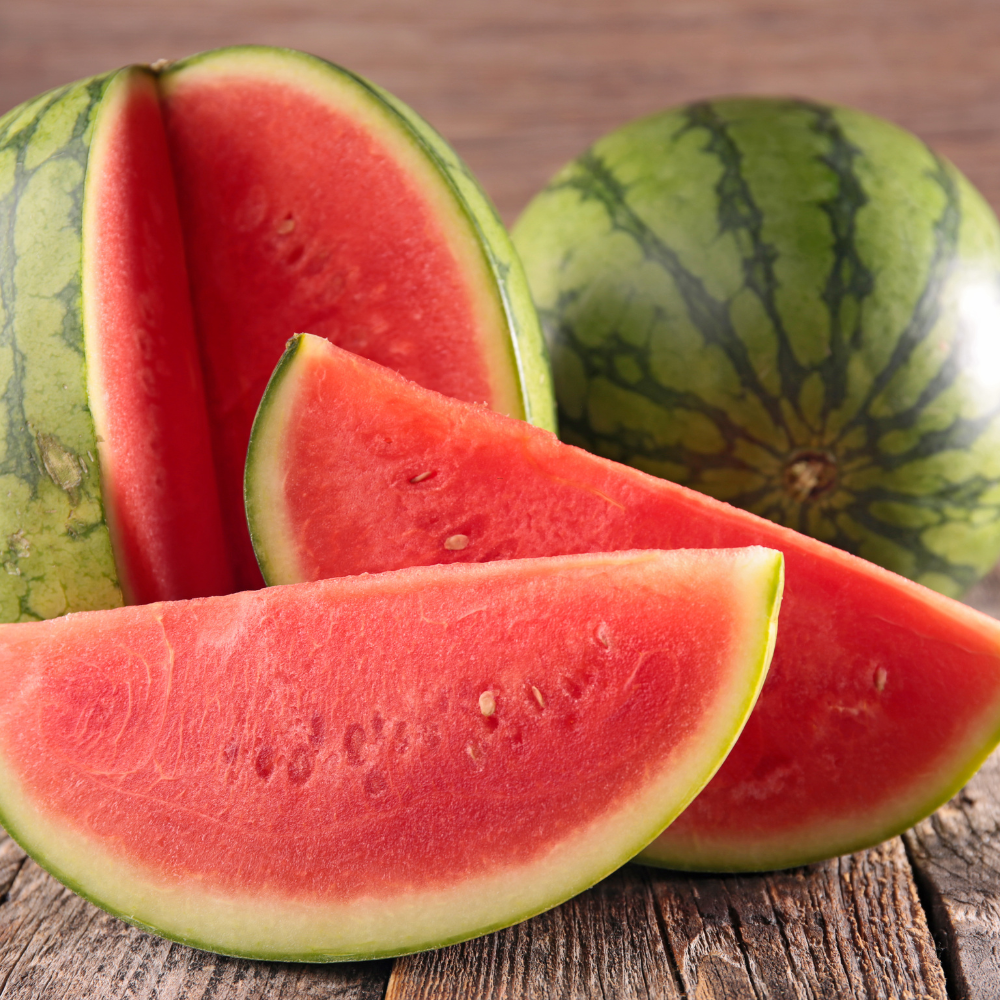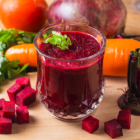What are the benefits of eating watermelon? This thought often comes with the beginning of the watermelon season. Watermelon, a sweet and refreshing fruit is usually available in summer when the hot scorching sun dehydrates our bodies. We all know this fruit is known for its hydrating properties but there are several other benefits that this fruit possesses!
Moreover, beyond its sweet and refreshing taste, watermelon is packed with nutrients that can transform your health.
So let’s help you better know the health benefits of eating watermelon.
What are the Health Benefits of Eating Watermelon?

It is often believed that food that is tastier is not healthier. Yet, fruits like watermelon, strawberries and grapes often debunk this myth. Watermelon is not only tasty, it is healthy as well. Still wondering what are the health benefits of eating watermelon, here are top 13 health benefits of watermelon!
1. Know for Hydration
Watermelon is made up of about 90% water. Eating it helps your body stay hydrated, especially on hot days. Staying hydrated is important for energy levels, digestion, and skin health.
2. A Great Supporter of Your Heart Health
Watermelon contains lycopene, a plant compound that supports heart health. Lycopene is known to help reduce blood pressure and improve cholesterol levels. Additionally, the potassium in watermelon helps maintain healthy blood pressure.
3. Skin and Hair Health Booster
The vitamins in watermelon, such as Vitamin A and Vitamin C, are essential for skin and hair. Vitamin A helps repair skin cells, while Vitamin C aids in collagen production. Collagen keeps your skin firm and your hair strong.
4. Aids Digestion
Watermelon is high in water and contains a small amount of fiber. This combination helps with digestion by promoting regular bowel movements and preventing constipation.
5. Good For Eye Health
Watermelon contains beta-carotene, which the body converts into Vitamin A. Vitamin A is important for maintaining healthy eyes and preventing age-related eye problems.
6. Reduces Muscle Soreness
The fruit contains an amino acid called citrulline. Citrulline may help reduce muscle soreness and improve exercise recovery. Drinking watermelon juice or eating the fruit before a workout can be beneficial.
7. Antioxidants Rich Fruit
Lycopene, Vitamin C, and beta-carotene are three antioxidants available in watermelon. These antioxidants protect the body from damage caused by harmful molecules called free radicals.
8. Helps Manage Weight
Watermelon is low in calories and high in water content. It is a great option for those looking to manage their weight while enjoying a sweet treat.
9. Supports Immune Function
Vitamin C in watermelon helps strengthen the immune system. A strong immune system protects the body from infections and illnesses.
10. Good for Bone Health
The potassium and lycopene in watermelon also contribute to bone health. Potassium helps maintain calcium levels in the body, while lycopene supports bone density.
11. Improves Kidney Health
Watermelon acts as a natural diuretic, which helps the body flush out toxins and improve kidney function. Its high water content supports the kidneys in their filtration process.
12. Promotes Healthy Blood Flow
The citrulline in watermelon helps improve blood flow by relaxing blood vessels. This can benefit overall cardiovascular health and reduce fatigue.
13. Help Reduce Inflammation
Compounds in watermelon, such as lycopene and Vitamin C, have anti-inflammatory properties. These can help lower inflammation in the body and reduce the risk of chronic diseases.
Healthy Facts About Watermelon
Now since we know about what are the health benefits of eating watermelon, lets know about some healthy facts about this fruit! Here are some amazing and healthy facts about watermelon that might seem amazing to know!
- Watermelon has a low glycemic index, meaning it has a minimal impact on blood sugar levels. This makes it a suitable fruit for people managing their blood sugar levels, though portion control is still essential.
- This amazing fruit is a good source of magnesium that helps to support muscle function, nerve signaling, and energy production.
- It is also known as a natural energy booster because the natural sugars in watermelon provide a quick energy boost, making it an excellent snack for active individuals or a pre-workout choice.
- In addition to water, watermelon provides electrolytes like potassium and magnesium, which are vital for preventing dehydration and maintaining energy balance.
- It is a popular summer fruit but can be enjoyed year-round in smoothies, salads, or as a refreshing snack.
Nutritional Value of Water Melon
Watermelon is a hydrating fruit rich in essential nutrients. It provides the following nutrients to the body:
- Calories
- Water Content
- Carbohydrates
- Sugars
- Fiber
- Protein
- Fat
- Vitamin C
- Vitamin A
- Potassium
- Magnesium
Additionally, watermelon contains antioxidants like lycopene and beta-carotene, which help combat oxidative stress in the body.
One slice of watermelon provides:
- Approximately 46 calories
- About 90% hydration
- 11.5 grams carbohydrates
- 9.4 grams sugar
- 0.6 grams fiber
- 0.9 grams Protein
- 0.2 grams fat
- Vitamin C – 12.5 milligrams (14–16% of daily needs)
- Vitamin A – 43 micrograms (5% of daily needs)
- Potassium – 170 milligrams (3.6% of daily needs)
- Magnesium – 15.4 milligrams (4% of daily needs)
Watermelon for Every Age Group
One of the best things about watermelon is that it suits everyone. Here’s why:
For Kids
Its natural sweetness and high water content make it a perfect snack for children. It is a healthier alternative to sugary drinks and snacks.
For Adults
Watermelon provides energy, supports weight management, and keeps you hydrated during busy days.
For Seniors
The easy-to-digest fruit is gentle on the stomach and helps keep seniors hydrated while providing essential vitamins and antioxidants.
To conclude, watermelon is a fruit that hydrates, heals, and satisfies your sweet tooth all at once. It is not just a summer staple, it is nature’s way of combining deliciousness with incredible health perks. Adding watermelon to your diet can enhance hydration, boost your immunity, and provide essential nutrients for your overall well-being.
Frequently Asked Questions:
Is it good to eat watermelon every day?
Yes, eating watermelon daily can be beneficial as it is low in calories and high in water content, helping with hydration. It is rich in vitamins A, C, and antioxidants like lycopene, which support overall health. However, moderation is key since consuming large quantities may lead to digestive issues due to its natural sugars and fiber. People with diabetes should monitor their intake to avoid blood sugar spikes.
Is watermelon good for the skin?
Watermelon is excellent for the skin because it is packed with vitamins A and C, which promote collagen production and help repair skin cells. Its high water content keeps the skin hydrated and radiant, while antioxidants like lycopene protect against UV damage. The fruit also has anti-inflammatory properties, reducing redness and irritation. Regular consumption can improve skin elasticity and prevent dryness.
What organ is watermelon good for?
Watermelon is particularly good for the heart and kidneys. It contains citrulline, an amino acid that helps improve blood flow and reduce blood pressure, promoting heart health. Its high water content and potassium levels aid kidney function by flushing out toxins and preventing kidney stones. Lycopene in watermelon also protects heart tissues from oxidative stress and inflammation.
What is the best time to eat watermelon?
The best time to eat watermelon is during the morning or early afternoon when the body needs hydration and energy. It can be enjoyed as a refreshing snack before workouts due to its high water and electrolyte content. Avoid eating it late at night as it may cause bloating or frequent trips to the bathroom due to its diuretic properties. Eating it on an empty stomach is also ideal for better digestion.
Is watermelon good for diabetic individuals?
Watermelon has a low glycemic index, but it should still be consumed in moderation by people managing their blood sugar levels.
What are the benefits of eating watermelon?
Watermelon helps with hydration, heart health, digestion, skin improvement, and more. It is rich in nutrients and antioxidants, making it a healthy choice for most people.
How much watermelon should I eat in a day?
One to two cups of watermelon daily is generally considered a healthy serving. However, portion control is important, especially for people with specific health conditions.
Is it okay to eat watermelon seeds?
Yes, watermelon seeds are edible and rich in nutrients like magnesium, iron, and healthy fats. They can be roasted and eaten as a snack.




